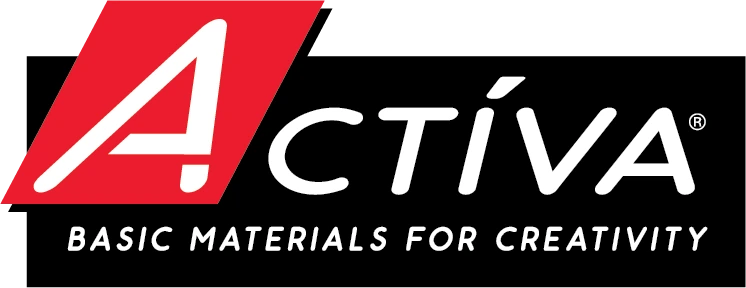Materials Needed:
- Activa White FastMache
- Water
- Zip top bag
- Recycled plastic jug
- Styrofoam spheres
- Recycled paper towel roll
- Serrated knife
- Hot glue gun
- Scissors
- Activ-Tools: Clay Tools Set
- Sandpaper
- Acrylic Paint
- Paint Brush
- Water bowl
- Varnish
Step 1
Prepare the FastMâché
Mix the FastMâché according to package directions.
Add 32oz. of warm water to 1 lb. of FastMâché, mixing in a zip top bag.

Knead with fingers until the FastMâché reaches the consistency of clay or stiff dough with no dry spots.

Add more dry FastMâché if mixture is too wet or soft, and more water if FastMâché if too dry or stiff.
Remove the FastMâché from bag when done mixing.

Step 2
Armature
Build an skeleton structure for the cat’s body starting with a recycled plastic jug.

Add a styrofoam ball to the top of the jug.
*Secure it in place with hot glue if necessary.

Step 3
Layer
Cover the armature with a coat of the FastMâché.

Smooth out any bumps in the FastMâché with wet fingertips.

Apply several coats of FastMâché as needed. Allowing the individual coats to dry in between layers.
Step 4
Legs & Feet
Divide a paper towel roll in half with scissors.
Divide two styrofoam balls in half with a serrated knife.
Attach both materials to the front of the bottle form using a hot glue gun.

Cover the recycled materials with a layer of FastMâché as explained in the previous step.

Build up the back legs with added FastMâché as needed.
Step 5
Ears
Cut two triangular shapes out of cardboard for the cat’s ears.

Attach the ear shapes to the head of the cat using a hot glue gun.

Cover the cardboard ear shapes with a layer of FastMâché as explained in the previous step.

Step 6
Tail
Build up the cat’s tail by applying a thick layer of FastMâché over the bottle’s handle and down the back of the bottle.

Step 7
Face
Sculpt out the cat’s facial features by layering the FastMâché and carving it with the clay tool.



Step 8
Dry
Allow the cat to air dry. Humidity levels will impact drying time.
The FastMâché will lighten in color and become harder as it is drying.
The FastMâché will feel room temperature when dry and have a bright white color appearance.
Step 9
Smooth
Use sandpaper to smooth out any rough areas or bumps on the sculpture’s surface.

Step 10
Color
Use acrylic paint to paint the sculpture.

Sealant may be applied once the paint has fully dried.








 />
/>
 />
/>